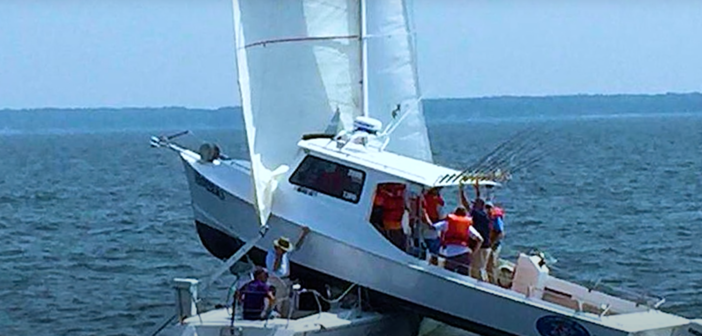With the Fourth of July weekend approaching, and the rest of summer unfolding ahead, more and more people will be out on the water, on all kinds of vessels, with all kinds of experience. This year, more of them will be new to boating; indeed, 415,000 people bought a boat for the first time in the past 18 months. Here are some great tips from the Water Sports Foundation in Orlando, Florida, about how everyone can stay safe this summer and beyond:
1. IMPORTANT BASICS: PLAN AHEAD & BE PREPARED
- Boaters should conduct a thorough inspection of their vessel and trailer to ensure everything is in working order. Check with the local Coast Guard auxiliary or Power Squadron for free vessel safety checks.
- Conduct a pre-departure check to make sure all required safety equipment is secured on board and operational.
- Top on the list: ensure life jackets are available and properly fit for weight and size for every passenger, especially youngsters. Life jackets save lives!
- Check weather conditions and plan accordingly. Be prepared to find shelter or return home if inclement weather is approaching.
- Never overload your boat. Check the capacity plate and follow all weight mandates.
- If you are operating a boat 26’ or smaller, make sure to comply with the new federal law requiring boat operators to wear and engage ECOS: Emergency Cut-Off Switch. Worn by the captain, this safety lanyard will shut off the engine immediately in the case of an overboard fall.
- Make sure VHF radios, phones and EPIRB transponders work. Consider carrying a portable cell phone battery charger as back-up.
- Pack sunscreen, first-aid kit and a basic toolkit.
2. FILE A FLOAT PLAN
- Create a simple document that includes the names and contact information of all those aboard the boat, along with planned destinations, expected departure and return times.
- Leave the plan with marina personnel and/or responsible emergency contacts.
3. PRE-DEPARTURE COMMUNICATIONS
- An important and often overlooked boater safety strategy: the captain should always gather the crew prior to departure to fully review safe boating protocols and practices.
- This may include instructions for passengers to remain seated when the boat is underway; to keep arms and legs within the vessel; to wear life jackets; and to review pre-appointed assignments such designated observers during watersports activities, etc.
4. DESIGNATE A SOBER SKIPPER
- Don’t drink and drive. Boating under the influence is the primary cause of boating-related deaths in the United States.
- The serious effects of sun, wind and water when coupled with the consumption of alcohol is a dangerous cocktail and recipe for potential disaster.
- Besides safeguarding family and friends from the effects and consequences of alcohol use, keep in mind marine law enforcement will be heavily patrolling waterways and issuing citations for those who are impaired and operating vessels under the influence. Read more:
https://www.watersportsfoundation.com/top-boating-tips-fourth-of-july/




